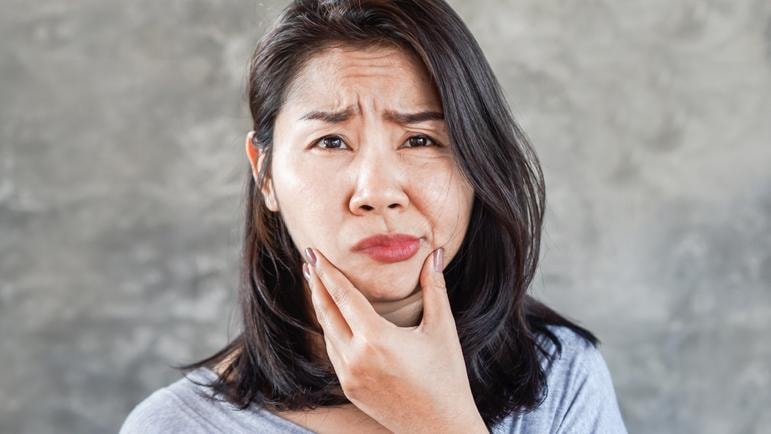How to detect facial paralysis due to cold early
Cold weather is one of the most common causes of facial paralysis. In addition, facial paralysis can also have other causes below.
Facial paralysis is a common peripheral nerve disease that occurs in all ages, regardless of gender, and is not contagious. It is estimated that for every 100,000 people, there are 20-25 cases of facial paralysis worldwide. Pregnant women are at higher risk, with a rate of 43 cases per 100,000 people.
Causes of facial paralysis include:
-Peripheral facial paralysis - facial paralysis due to cold
According to the National Institute of Neurological Disorders and Stroke, cold is the most common cause of facial paralysis. Each year, about 40,000 Americans experience sudden facial paralysis due to frostbite. While the exact cause of frostbite is not known, many doctors believe it may be related to a viral infection of the facial nerve. Most people with frostbite recover completely within a week to six months.
Symptoms of facial paralysis due to cold are unilateral facial paralysis (rarely both sides of the face) including: loss of skin sensation on the paralyzed side, reduced tear secretion, mouth pulled to the healthy side, reduced sense of taste, stuttering, drooling, pain in or behind the ear, sharp pain on the paralyzed ear when there is a loud sound, difficulty eating and drinking...
-Otitis media causing facial paralysis
If otitis media is not treated or treated late, it can also cause facial paralysis. Patients with symptoms of acute otitis media or dangerous chronic otitis media may have peripheral facial paralysis - with chronic otitis media, peripheral facial paralysis is one of the warning signs of dangerous otitis media, requiring the intervention of a specialist.
-Stroke - central facial paralysis
A more serious cause of facial paralysis is stroke. Facial paralysis occurs during a stroke when the nerves that control the muscles in the face are damaged in the brain. Depending on the type of stroke, the damage to nerve cells is due to lack of oxygen or swelling that compresses the cells due to bleeding in the brain. Brain cells can die within minutes.
Facial paralysis due to stroke feels like facial paralysis due to cold, accompanied by symptoms such as: Changes in level of awareness, mental stress, dizziness, loss of coordination of movements, convulsions, changes in vision or complete or incomplete paralysis of body parts such as limbs...
If a stroke causes damage to the central facial nerve, the eyes can still be opened and the upper face can still move normally, showing paralysis of the lower half of the face.
Because it can sometimes be difficult to distinguish between a stroke and other causes of facial paralysis, it's important to take a loved one to the doctor promptly if facial paralysis is noticed.

There are many other causes that can also cause facial paralysis, the most common of which are facial trauma and trauma to the temporal bone segment containing the facial nerve.
-Ramsay-Hunt syndrome,caused by a virus that affects the facial nerve, with symptoms such as: earache, facial paralysis, tinnitus, hearing loss on the same side, dizziness, voice disorder...
-Craniocerebral tumorsVII nerve damage
-Autoimmune diseasessuch as multiple sclerosis, which affects the brain and spinal cord, and Guillain-Barré syndrome, which affects the nervous system.
-Childbirth can cause temporary facial paralysis in some newborns.However, 90% of infants with this type of injury will recover completely without treatment.
-Some congenital syndromes cause facial paralysis, such as Mobius syndrome and Melkersson-Rosenthal syndrome.
Summary: Facial paralysis can occur suddenly or gradually over a period of months (in the case of tumors). Depending on the cause, paralysis can last for a short time or be permanent. Facial paralysis can be caused by central (brain area) or peripheral (nerves outside the control of the brain) causes.
Therefore, when there are signs of facial paralysis such as: Feeling numb in the face (usually one side) accompanied by difficulty chewing. When drinking water, water will automatically flow out of the mouth on the paralyzed side. When looking in the mirror, you will see that your face is unbalanced... you need to go to a medical facility immediately for examination and timely treatment. Absolutely do not treat according to advice, treat at home to avoid endangering your life.


